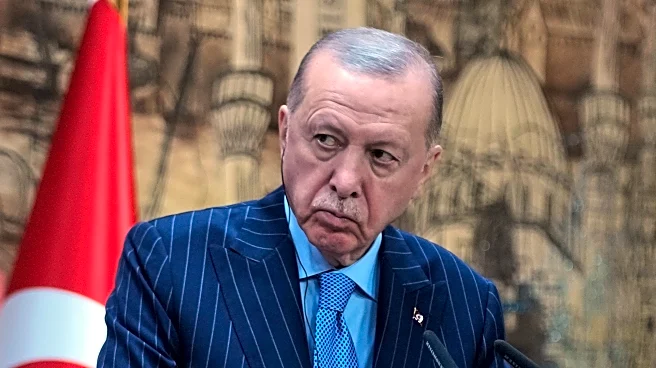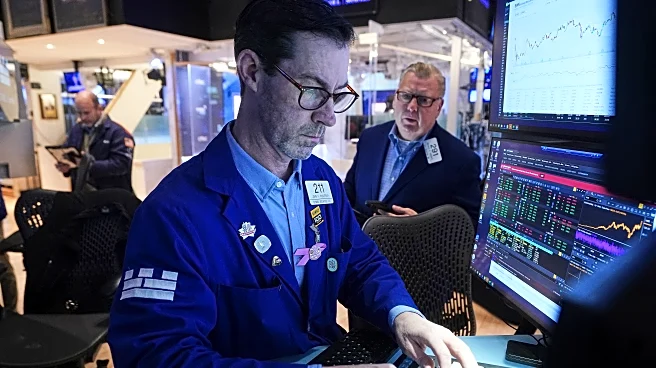What's Happening?
The HBO Max medical drama 'The Pitt' has been praised for its realistic depiction of end-of-life care, largely due to the influence of the non-profit organization End Well. Founded by Dr. Shoshana Ungerleider in 2017, End Well aims to improve cultural attitudes around end-of-life care. The organization has contributed to the show's nuanced portrayal of death and dying, connecting the creators with experts like Dr. Ira Byock. The show has incorporated real-life medical practices and emotional narratives, such as organ donation and the concept of a 'good death,' into its storylines. These efforts have led to positive real-world impacts, with viewers reportedly taking action based on the show's portrayals.
Why It's Important?
The accurate portrayal of end-of-life care in 'The Pitt' is significant as it influences public perception and understanding of serious illness and death. By showcasing realistic scenarios, the show helps demystify medical processes and encourages viewers to engage in conversations about end-of-life decisions. This can lead to more informed choices and better communication between patients, families, and healthcare providers. The involvement of End Well highlights the importance of expert input in media productions, ensuring that sensitive topics are handled with care and accuracy.
What's Next?
The show's continued exploration of end-of-life themes may further impact viewers' attitudes and behaviors. As 'The Pitt' progresses into its second season, it plans to incorporate new expert insights, such as those from a death doula, into its storylines. This ongoing collaboration with End Well and other experts suggests that the show will continue to provide valuable educational content, potentially influencing healthcare practices and public discourse on end-of-life care.
Beyond the Headlines
The collaboration between 'The Pitt' and End Well underscores the ethical responsibility of media to portray sensitive topics accurately. It also highlights the potential for television to serve as a tool for social change, educating audiences and prompting discussions that can lead to improved healthcare outcomes. The show's impact on viewers' real-life decisions demonstrates the power of storytelling in shaping cultural attitudes and practices.












